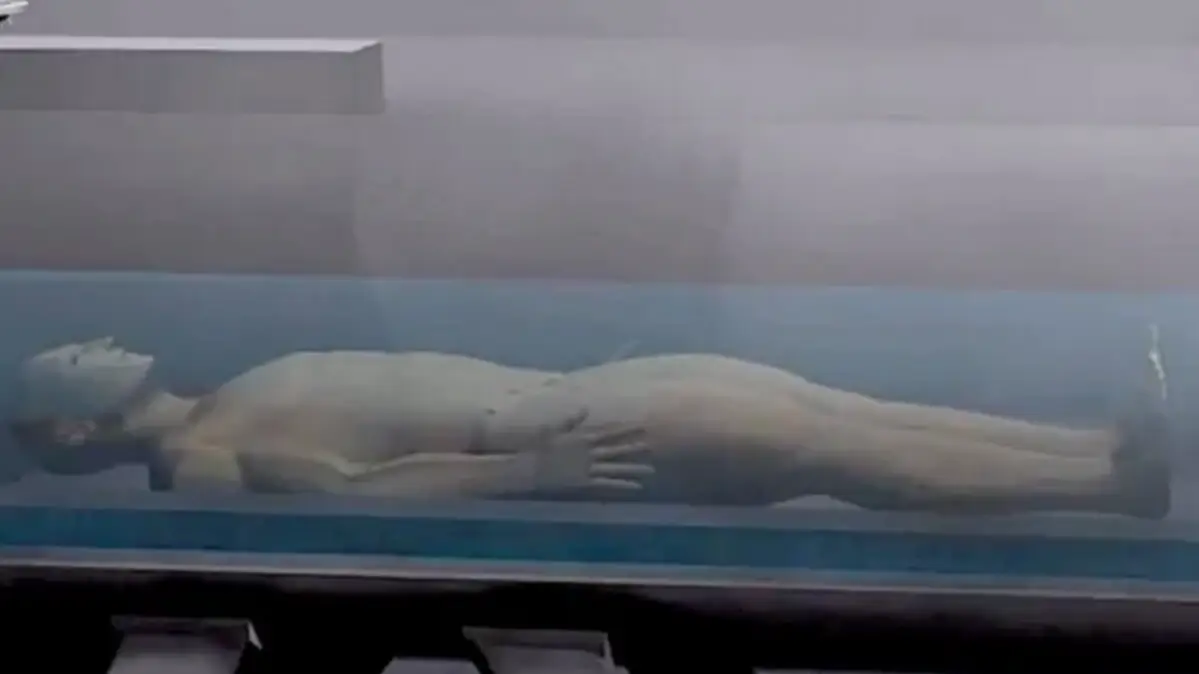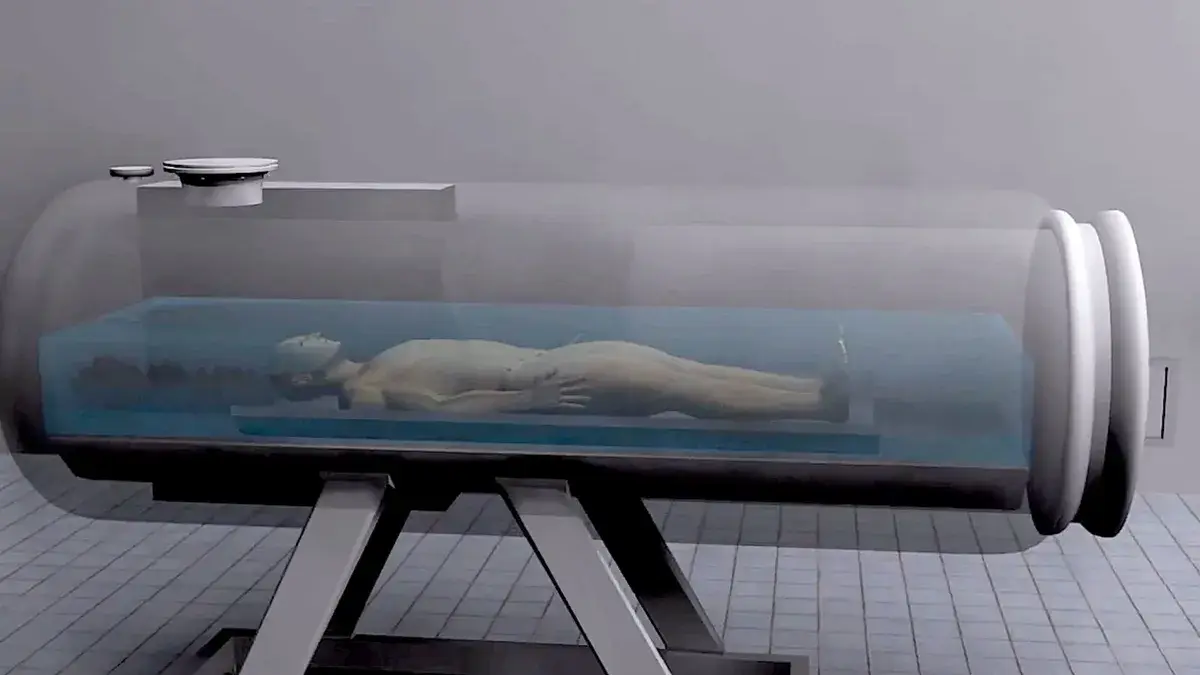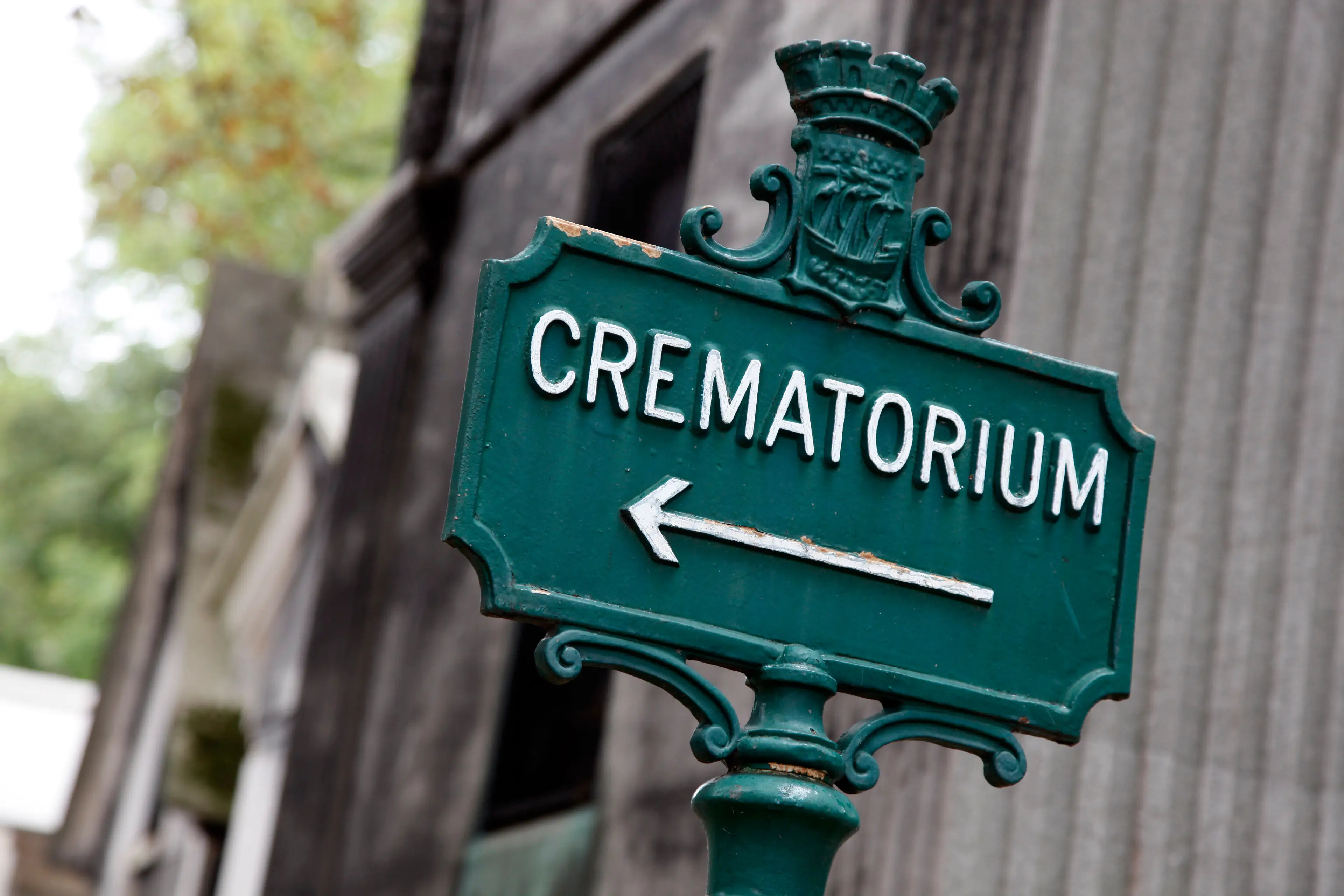
It can be slightly morbid wondering about what's going to happen to us after we die.
Usually something we push to the back of our minds, there is now a whole new way of dealing with a dead body that we've got to consider as a potential option.
Heads up - it's pretty strange.
Advert
Cremation is the well-known process by which a person who has died is turned into ashes which are then commonly given to family or loved ones to keep or scatter in a meaningful setting.
Burial, however, revolves around a ceremony where the deceased individual's body is buried right into the ground, sometimes with objects. People can also opt for open or closed caskets with this method.
While most people tend to opt for either cremation or burial when it comes to their post-funeral arrangements, a new and slightly alternative method has been added to the roster.

And that is the process referred to as 'aquamation'.
Unlike cremation, aquamation uses the method of alkaline hydrolysis as a means of disposing human or animal remains instead of a furnace - which needs to be cranked up to anywhere between 1000 to 1300 degrees Celsius.
Dubbed as more of an eco-friendly alternative to cremation, aquamation is also known as 'biocremation'.
Totally flameless, this disposal method effectively preserves the body in water with a heated alkaline solution which breaks down the body, subsequently only leaving behind the skeleton.

Getting into the science of the phenomenon, the process follows the dead body being put inside a pressurised vessel filled with a mixture of water and potassium hydroxide.
The vessel is then heated to a temperature of approximately 160 °C (320 °F).
However, you'll be relieved to know that the heat is applied at an elevated pressure - which prevents boiling.
As the pressure in the vessel increases, the solution then gradually breaks down the organic matter - the body - over the course of several hours.
Really getting in the nitty gritty now - the aquamation eventually liquifies absolutely everything in the pressurised vessels except for the bones.
Relatives and loved ones can still be handed ashes, though, as the remaining bones are then removed from the vessel and dried in a huge oven to be reduced down to white dust.
And for anyone wondering what happens to the liquified remains in the solution afterwards, it can be used as a fertiliser as it contains salts and amino acids.
Alternatively, the leftover liquid can also be neutralised and safely released into waterways.

Bio-Response Solutions, a US company that specialises in aquamation, explains that the process uses '90 percent less energy' than flame cremation and does not emit any harmful greenhouse gases.
Aquamation for humans is currently approved in 21 selected American states including Alabama, California and Florida.
Alongside this, the process is also legal in the Northwest Territories, Ontario, Quebec, Saskatchewan, Costa Rica, Mexico and South Africa.
And one particular famous face opted for the aquamation method for his funeral.
According to the Archbishop Tutu IP Trust and the Desmond and Leah Tutu Legacy Foundation, the South African anti-apartheid hero, Desmond Mpilo Tutu, requested the method after his death on 26 December 2021.
Tutu, who received the Nobel Prize for Peace for his incredible activist work, was reportedly 'very clear' with his funeral plans.
Tutu IP Trust and the Desmond and Leah Tutu Legacy Foundation announced: "He wanted no ostentatiousness or lavish spending.
"He asked that the coffin be the cheapest available and that a bouquet of carnations from his family be the only flowers in the cathedral," News24 reports.
Topics: Weird, Science, Environment